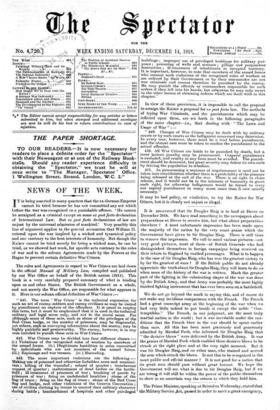The rules and Agreements in regard to War Crimes are
laid down in the_official Manual of Military Law, compiled and published by our War Office on behalf of the British nation (1914). This book is a very carefully prepared summary of what is binding upon us and other States. The British Government as a whole, and not merely the War Office, are responsible for what appears in it. Here is our solemn official definition of War Crimes ;— " 441. The term War Crime' is the technical expression for such an act of enemy soldiers and enemy civilians as may be visited by punishment on capture of the offenders. It is usual to employ this term, but it must be emphasized that it is used in the technical military and legal sense only, and not in the moral sense. For although some of these acts such as abuse of the privileges of the Red Cross badge, or the murder of prisoners, may be disgraceful, yet others, such as conveying information about the enemy, may be highly patriotic and praiseworthy. The enemy, however, is in any case entitled to punish these acts as War Crimes.
442. War Crimes may be divided into four different classes :— (i.) Violations of the 'recognized rules of warfare by members of the armed forces. (ii.) Illegitimate hostilities in arms committed by individuals who are not members of the armed forces. (in.) Espionage and war treason. (iv.) Marauding.
443. The more important violations are the following :— Making use of poisoned and otherwise forbidden arms and ammuni- tion; killing of the wounded ; refusal of quarter ; treacherous request of quarter ; maltreatment of dead bodies on the battle- field ; ill-treatment of prisoners of war ; breaking of parole by prisoners of war ; firing on undefended localities ; abuse of the flag of truce • firing on the flag of truce ; abuse of the Red Cross flag and badge, and other violations of the Geneva Convention ; use of civilian clothing by troops to conceal their military character during battle ; bombardment of hospitals and other privileged
buildings ; improper use of privileged buildings for military pur- poses; poisoning of wells and streams ; pillage and purposeless destruction ; ill-treatment of inhabitants in occupied territory. It is important, however, to note that members of the armed forces who commit such violations of the recognized rules of warfare as are ordered by their Government or by their commander are not war criminals and cannot therefore be punished by the enemy. He may punish the officials or commanders responsible for such orders if they fall into his hands, but otherwise he may only resort to the other means of obtaining redress which are dealt with in this chapter."






































